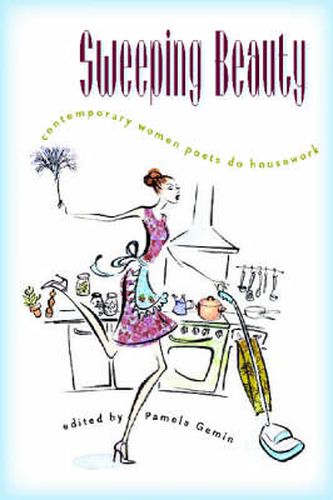Readings Newsletter
Become a Readings Member to make your shopping experience even easier.
Sign in or sign up for free!
You’re not far away from qualifying for FREE standard shipping within Australia
You’ve qualified for FREE standard shipping within Australia
The cart is loading…






Thankless, mundane, and
never done,
housework continues to be seen as women’s work, and contemporary women poets are still writing the domestic experience - sometimes resenting its futility and lack of social rewards, sometimes celebrating its sensory delights and immediate gratification, sometimes cherishing the undeniable link it provides to their mothers and grandmothers. In Sweeping Beauty, a number of these poets illustrate how housekeeping’s repetitive motions can free the imagination and release the housekeeper’s muse. For many, housekeeping provides the key to a state of mind approaching meditation, a state of mind also conducive to making poems. The more than eighty contributors to Sweeping Beauty embrace this state and confirm that women are pioneers and inventors as well as life-givers and nurturers.
My fingers are forks, my tongue is a rose…I turn silver spoons into rabbit stew/make quinces my thorny upholstery…how else could the side of beef walk/with the sea urchin roe?
sings the cook in Natasha Saje’s ode to kitchen alchemy.
I love the notion that we can take our most poisonous angers, our most despairing or humiliated or stalemated moments, and make something good of them - something tensile and enduring,
says Leslie Ullman. Whether we are fully present in our tasks or
gone in the motion
of performing them, whether our stove tops are home to
stewpots of discontent
or grandmother’s favorite jam, something is always cooking.
$9.00 standard shipping within Australia
FREE standard shipping within Australia for orders over $100.00
Express & International shipping calculated at checkout
Thankless, mundane, and
never done,
housework continues to be seen as women’s work, and contemporary women poets are still writing the domestic experience - sometimes resenting its futility and lack of social rewards, sometimes celebrating its sensory delights and immediate gratification, sometimes cherishing the undeniable link it provides to their mothers and grandmothers. In Sweeping Beauty, a number of these poets illustrate how housekeeping’s repetitive motions can free the imagination and release the housekeeper’s muse. For many, housekeeping provides the key to a state of mind approaching meditation, a state of mind also conducive to making poems. The more than eighty contributors to Sweeping Beauty embrace this state and confirm that women are pioneers and inventors as well as life-givers and nurturers.
My fingers are forks, my tongue is a rose…I turn silver spoons into rabbit stew/make quinces my thorny upholstery…how else could the side of beef walk/with the sea urchin roe?
sings the cook in Natasha Saje’s ode to kitchen alchemy.
I love the notion that we can take our most poisonous angers, our most despairing or humiliated or stalemated moments, and make something good of them - something tensile and enduring,
says Leslie Ullman. Whether we are fully present in our tasks or
gone in the motion
of performing them, whether our stove tops are home to
stewpots of discontent
or grandmother’s favorite jam, something is always cooking.